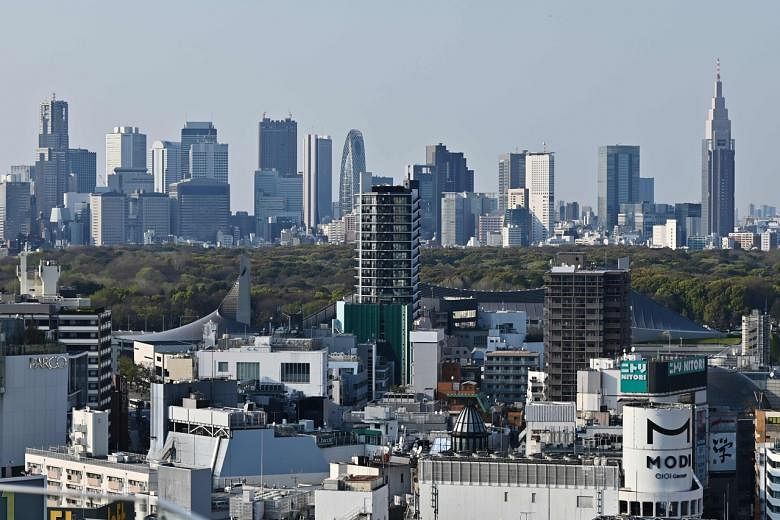TOKYO (BLOOMBERG) - Japan detailed an array of companies that will be subject to new rules restricting foreign investment, moving to protect industries it says are core to national security from the influence of foreign state interference.
The Foreign Exchange and Foreign Trade Act requires some foreign investors to report in advance when they plan to buy a more than 1 per cent stake in the designated firms, versus a previous threshold of 10 per cent. The steps add restrictions to investments in more than half the listed companies in the country, though a series of blanket exemptions apply for registered investors, including most financial and asset management firms.
The list announced on Friday (May 8) groups companies into one of three categories:
- those exempt from the restrictions entirely
- a group of around 500 companies operating in so-called core industries including nuclear power and defense
- a broader group of more than 1,500 companies in non-core industries including broadcasting and transport, subject to less stringent rules.
The law came into force on Friday with full implementation set to begin on June 7 after a 30-day transition period. Blue chips such as Toyota Motor, Sony and SoftBank Group are part of the group operating in core sectors, while the likes of Nintendo and Fanuc make the the broader, "non-core" list.
Japan has said the legislation is necessary to protect national security and likened it to the recent legislation in the US, while critics have contended the moves will limit activist investing and foreign influence at a time when Japan has been trying to promote its equity markets.
BROAD EXEMPTIONS
"This is in line with what the governments around the world are doing," said Justin Tang, head of Asian research at United First Partners. "This is largely to prevent predatory and opportunistic acquisitions at a time when companies are weakened due to the one-off effects of Covid-19."
A number of companies whose relevance to national security was less obvious also made the lists, from Tokyo Disneyland operator Oriental Land to used golf store chain Golf Do Co. Some current and recent targets of activist investors also appeared, including concert venue operator Tokyo Dome Corp which has been eyed by Oasis Management, and Shibaura Machine, formerly known as Toshiba Machine, a target of controversial activist investor Yoshiaki Murakami.
The legislation includes a large number of exemptions, meaning the rules don't apply to the likes of banks, asset managers, hedge funds and high-frequency traders registered with the Financial Services Agency. The exemptions were added after strong criticism from the financial industry and some members of Japan's ruling Liberal Democratic Party to early drafts of the bill.
The steps are most likely to target foreign state-owned enterprises, with Chinese investment in the country a particular source of concern. Japan has said sovereign wealth funds that "pose no risk to national security" can also get an exemption, provided investment decisions are made without government interference.
The legislation also gives a framework for Japan to quickly protect industries of national concern, with Fujifilm Holdings, the maker of potential coronavirus treatment Avigan, already on the core list. Two more companies involved in the production of the drug, which Japan has been promoting internationally as a virus treatment despite its efficacy still being unclear, will also be added, the Yomiuri newspaper reported on Monday.
Some 1,698 companies in industries not directly related to national security are entirely exempt from the reporting requirements, including firms in retailing, food, and finance.

